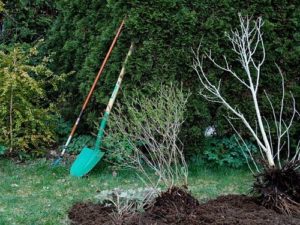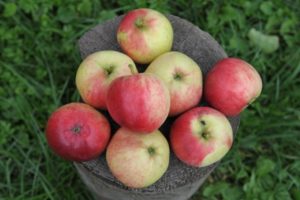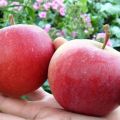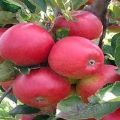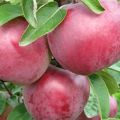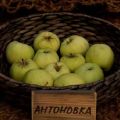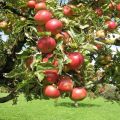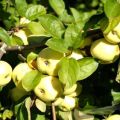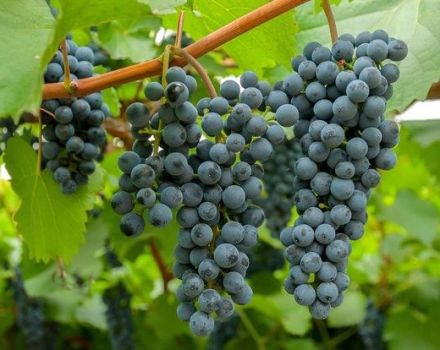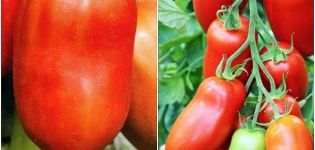Description and characteristics, advantages and disadvantages of Krasa Sverdlovsk apple tree, growing rules
The Krasa Sverdlovsk apple tree is grown in many regions. Summer residents fell in love with this hybrid due to its unpretentiousness in growing and care, as well as high yield. The apple variety is called Sverdlovskaya Krasavitsa in some regions.
Content
Origin of culture
The Sverdlovsk Beauty was bred by breeders from the Sverdlovsk region in the 70s of the last century. According to some reports, one of the parent varieties was apple hybrid Jonathan... The name Krasa Sverdlovsk came from the region of origin. For several decades in a row, this hybrid was recognized as the best among apple varieties.
Advantages and disadvantages of the variety
The advantages of the variety include:
- The main advantage is its high resistance to diseases and pests.
- Taste qualities and external characteristics of apples.
- Apples do not spoil during long transportation and lie for a long time after harvest.
- Ripe fruits hang on the branches for a long time.
The disadvantages include the weak resistance of the tree to winter frosts.
Description
Before choosing an apple variety, it is important to study the description of the selected varieties. Attention is drawn to the characteristics of the tree and the palatability of the ripe fruit.
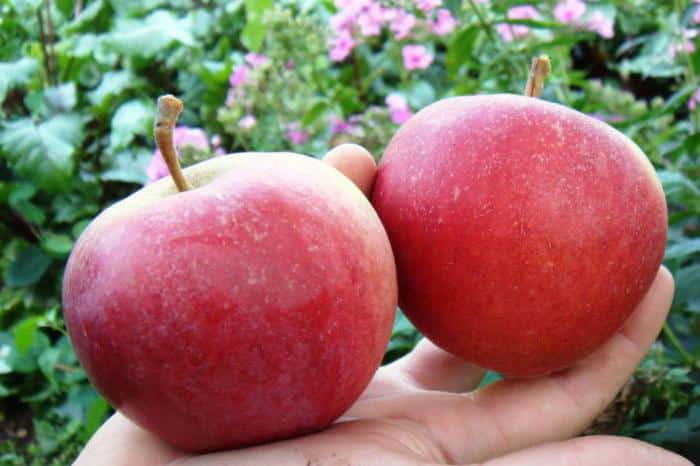
Tree height
The height of the tree is 4-5 m. The Sverdlovskaya Krasavitsa belongs to medium-sized plants. The height of the trunk may vary depending on the region of cultivation.
Crown width
Crohn belongs to the spreading type. The crown diameter reaches 4 m.The length of the branches is on average 2-2.5 m.
Root system
The root system is powerful. The main root is long.
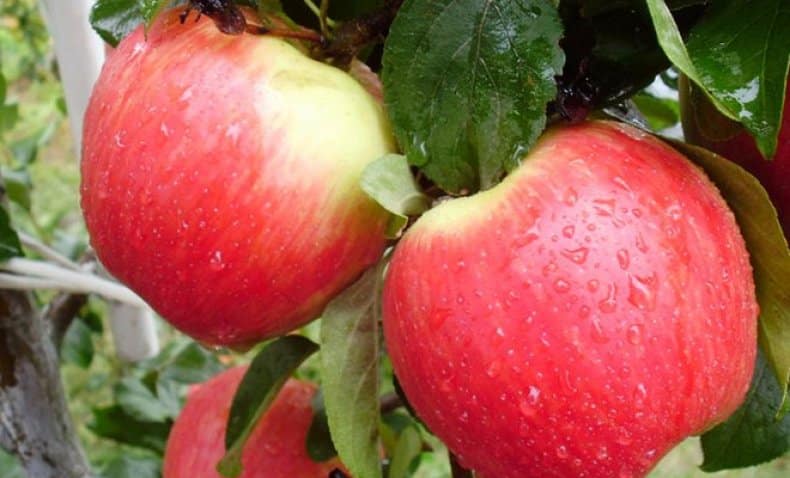
Colour
Inflorescences are light pink. Emerald leaves. The bark is rich brown color.
Fruit
The pulp is sweet with a sour taste, very aromatic. The rind is firm. The pulp is granular in structure, juicy, white-cream shade. The skin is red-green.
Among the winter varieties Krasa Sverdlovsk is considered one of the most delicious.
Technical specifications
The technical parameters include winter hardiness, immunity to diseases and insects, and the lifespan of the apple tree.
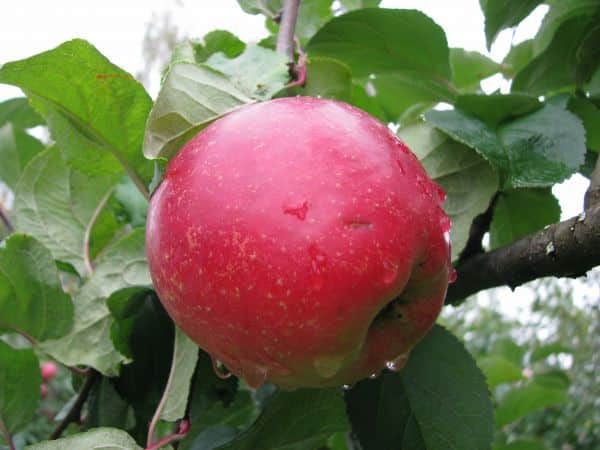
Winter hardiness
Winter hardiness of the Krasa Sverdlovsk apple tree is average. In the northern regions, plants often cannot withstand winter frosts.
Disease resistance
Disease resistance is high. The apple tree is rarely sick with powdery mildew. When carrying out preventive measures, the tree practically does not get sick.
Life span
The life span of the Sverdlovsk Beauty apple tree is from 25 to 30 years.
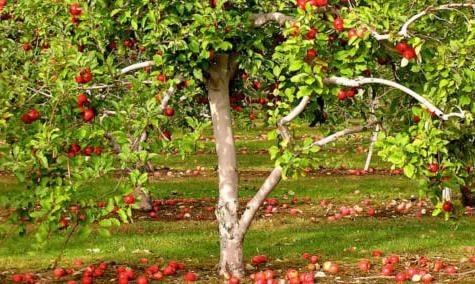
All about the harvest
Every gardener wants to find the most productive apple variety. Before planting a seedling, the pollination of the selected variety and fruiting are studied.
Pollinating varieties
Any varieties of apple trees that bloom at the same time as the Beauty of Sverdlovsk are suitable to increase pollination.
The beginning of fruiting
The apple tree begins to bear fruit in the 3-4th year after planting the seedling in the ground. If you plant a seedling in the fall, fruiting will begin earlier.

The timing of flowering and ripening of fruits
The tree begins to bloom in the second decade of May. The first red apples are removed from the plant in late August. Mass ripening begins in September.
Collecting and using apples
The apples are harvested as they ripen. It is best to harvest immediately before the apples have fallen. The harvested crop is used for making juices, jams, baked goods. The hardest fruits are left for the winter.
Tasting assessment
The tasting score is 4.4 out of 5 points.
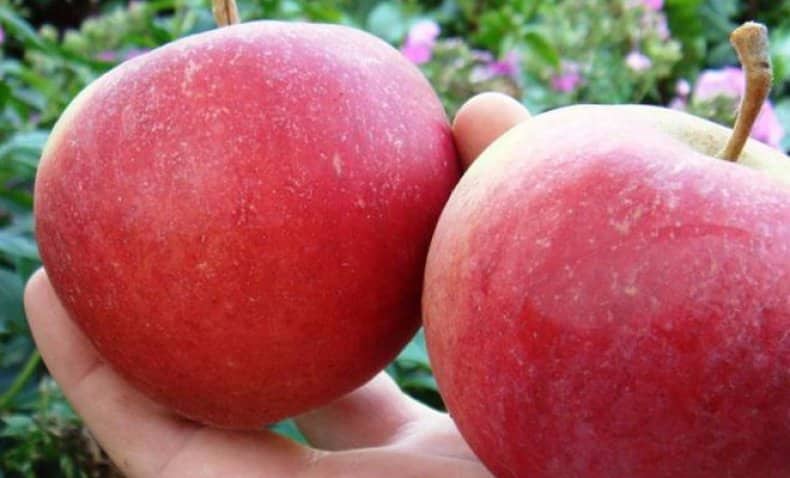
Susceptibility to diseases and pests
Despite its high immunity to diseases, without organized care, the apple tree often suffers from various diseases of the fruits of crops. In addition, insects can often be found on the plant.
Apple crayfish
The first sign of apple crayfish is the appearance of cracks in the bark, black dots near them, deformation of the inflorescences and the absence of ovaries. To get rid of the disease, you need to cut off all infected branches and examine nearby trees.
Treat the sections with copper sulfate or brilliant green. Then treat the apple tree with fungicides.
Scab
Signs of scab:
- Green and marsh spots on leaves, fruits.
- Cracks appear.
- Yellowing of foliage.

To destroy the fungus in the spring, plants are sprayed with the preparation "Zircon". After flowering, the trees are treated with copper sulfate or the Horus chemical. All diseased branches are cut off.
Powdery mildew
Fungicides and copper sulfate help with powdery mildew.
Mole, golden silkworm
Trees are sprayed with Iskra-Bio, Ectobacterin-3 or Lepidocide biological products.
Apple sawfly
A week before flowering, plants are treated with organophosphorus compounds or biological pesticides.
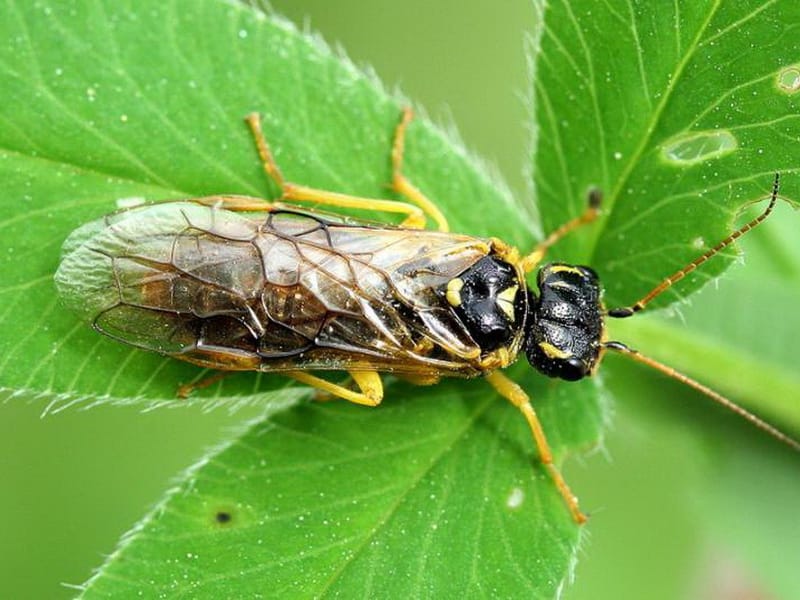
Forms and options for growing
There are 3 forms of growing a tree.
Dwarf
The advantages of dwarf rootstocks include acceleration of fruiting, compactness of the tree, medium thickening of the crown, which provides more light to the fruits.
Stamper
The traditional type of rootstocks for this variety is standard. Before the onset of winter, the trunk and skeletal branches are insulated.
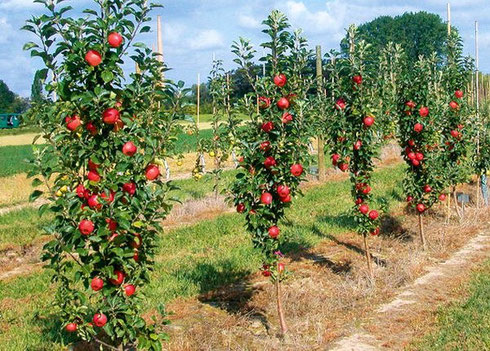
Creeping
This type of cultivation is used in the northern regions. For the winter, the plant is covered with spruce branches.
In which areas is it recommended to grow
It is recommended to grow in the central, southern regions and the Volga region.
Landing features
It is important to select a site and prepare the soil before planting.
Timing
Autumn planting is preferable, since during the winter the seedling will have time to take root in a new place.

Preparation of seedlings
For 2-3 hours, the rhizome is soaked in a growth activator. Before planting in the soil, the roots are dipped in a clay solution.
Choosing the best place
It is advisable to plant in open sunny areas at a distance of 3-4 m from other trees.
Required soil composition
Loamy, sandy loam soils and chernozem are considered optimal. Preference should be given to light and fertile soils.
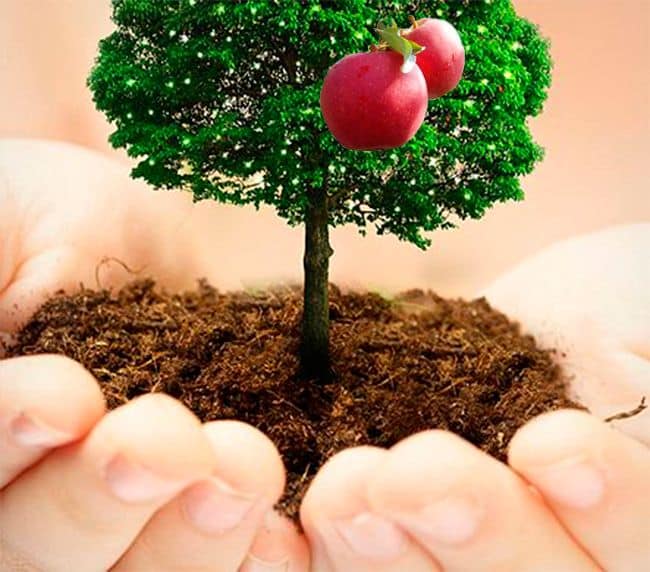
Hole layout and dimensions
For planting, a hole is dug 1 m deep.The width is 80 cm.The distance between other trees is 3-4 m.
Procedure technology
For 3 weeks, the soil is dug up. Manure, nitrogen and wood ash are poured into the pit. A stake is driven into the center. The seedling is placed in a hole, buried in soil. Poured with warm water and tied to a stake.
Care for a young and adult apple tree
Without care, you will not be able to grow a good harvest.
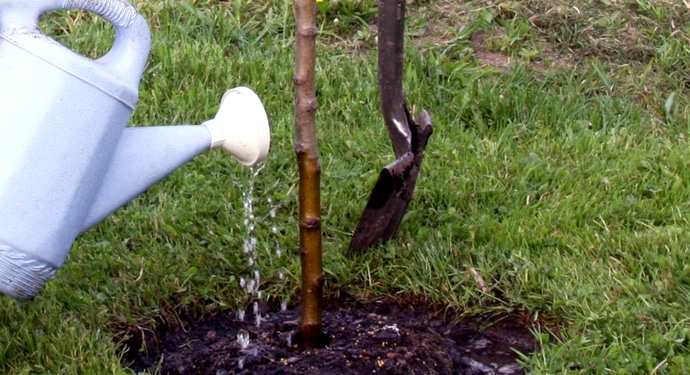
Watering
Watering stages:
- First watering during bud formation.
- The second is during flowering.
- The third is when the apples are poured.
- The last one is before the onset of winter.
Watered only with warm water.
Top dressing
At the beginning of the season, nitrogen and organic fertilizing are introduced into the soil. When the period of ovary formation is over, phosphorus and potassium are added to the soil. In addition, the soil is fertilized with manure, compost and humus.
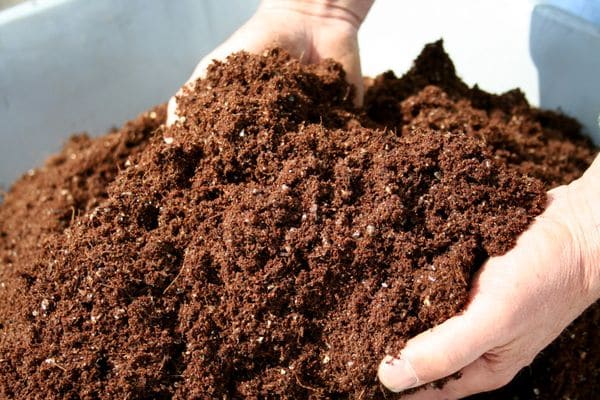
Pruning
In the fall, diseased and dry branches are cut off. In the spring, part of the branches at the top and young shoots are cut off. 4-5 skeletal branches are left.
Wood processing
Every year, as a prophylaxis, apple trees are sprayed with Bordeaux liquid or copper sulfate.
Preparing an apple tree for wintering
With the onset of cold weather, the soil around the trunks is mulched with peat. The lower part of the trunk is covered with durable material so that the mice do not gnaw the bark in winter. In northern latitudes, trees are covered with spruce branches. If the winter is snowy, they shake off the snow from the branches so that they do not break. Also, the trunk is covered with additional snow.
